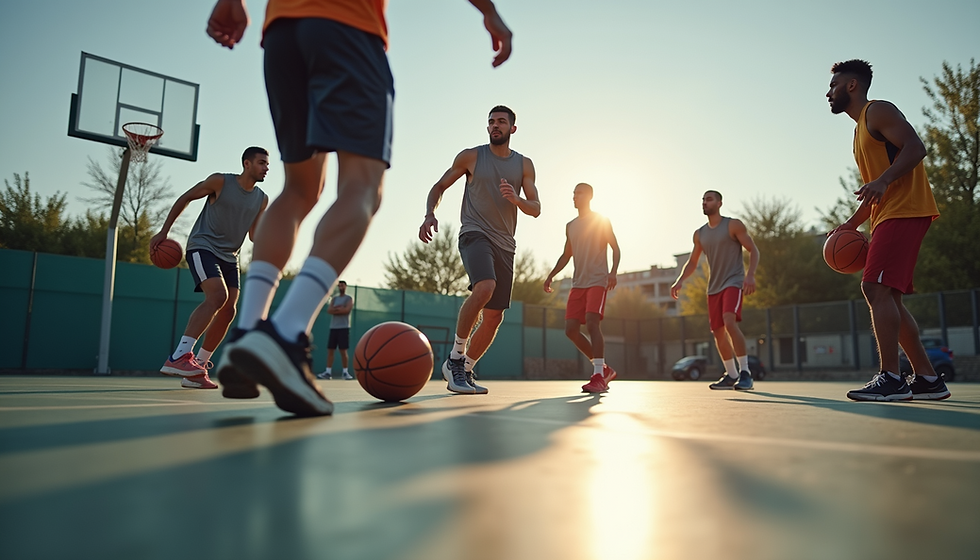Your Ultimate Guide to Succeeding at Tryouts
- james wooten
- Oct 21, 2025
- 3 min read
Tryouts can be an intimidating experience, whether you're aspiring to join a sports team, a theater production, or a music ensemble. The pressure to perform well can feel heavy, but with the right preparation and mindset, you can boost your chances of success. This guide will provide you with essential tips and strategies to help you shine during your next tryout.
Understanding the Tryout Process
Understanding the tryout process is the first step to effective preparation. Typically, tryouts involve a series of evaluations where participants showcase their skills in front of coaches, directors, or judges. These evaluations can vary significantly depending on the activity. For instance, basketball tryouts may include drills assessing shooting accuracy, while musical auditions may consist of performing a selected piece.
Familiarizing yourself with the specific requirements of your tryout is crucial. You can ask previous participants about their experiences, read official materials, or even find videos online. Knowing the format, the skills being assessed, and any other relevant details will allow you to tailor your preparation effectively.
Preparing Physically and Mentally
Physical Preparation
No matter the type of tryout, physical preparation is key. For sports tryouts, this means dedicating time daily to hone your skills. For example, a soccer player might practice dribbling and shooting over 200 times in two weeks, while a swimmer could focus on improving lap times by 5%.
If you're preparing for a performing arts tryout, you should rehearse your lines, practice your dance movements, or refine your musical pieces. Always make time for proper warm-ups before the tryout. For instance, spending just 10 minutes warming up can prevent injuries and improve performance.
Mental Preparation
Mental preparation is equally important. Tryouts can be stressful, so managing anxiety is crucial. Techniques like visualization can really help. Picture yourself succeeding—visualize nailing your performance while receiving enthusiastic applause.
Mindfulness and breathing exercises are also effective. For example, consider a simple breathing technique where you inhale for four seconds, hold for four seconds, and exhale for four seconds. These methods help ground you and calm your nerves. Remember, it's completely normal to feel anxious, but having a positive mindset can greatly impact how you perform.
Building Confidence
Confidence plays a vital role in how you present yourself during tryouts. Here are some effective strategies to build your confidence:
Practice Regularly: The more you practice, the more confident you'll become. Set aside at least three hours a week dedicated solely to your craft.
Seek Feedback: Share your practice sessions with friends, family, or coaches. Their constructive feedback can help you identify areas for improvement and significantly boost your confidence.
Set Realistic Goals: Instead of solely fixating on the end result, break your preparation into smaller, achievable goals. This might mean successfully completing a skill or maintaining a positive attitude throughout the tryout.
The Day of the Tryout
Arriving Prepared
On the day of the tryout, aim to arrive at least 30 minutes early. This allows you time to settle in, warm up, and mentally prepare for what's ahead. Bring all necessary gear, like sports equipment or audition materials, and check your bag twice to make sure nothing is forgotten.
Dressing Appropriately
Your outfit can impact both your confidence and performance. Choose comfortable clothing that allows you to move freely. If you’re attending a sports tryout, for example, wear the proper athletic gear that fits well. For performing arts, select outfits that reflect the character you are auditioning for while ensuring you are comfortable enough to perform your best.
During the Tryout
Showcasing Your Skills
When it’s your turn to perform, focus on showcasing your skills confidently. Remember to breathe and take your time. If you make a mistake, don’t dwell on it; maintain focus and finish strong.
Engaging with Judges or Coaches
Make eye contact with judges or coaches during your performance. This not only demonstrates confidence but also creates a connection. If there's an opportunity for interaction, such as a brief introduction or a question, seize it! Use this time to express your enthusiasm for the opportunity.
Post-Tryout Reflection
Reflecting on Your Performance
After the tryout, take a moment to reflect on your performance. Write down what went well and areas that need improvement. This practice is crucial for growth and will shape your preparation for future tryouts.
Handling Feedback
If you receive feedback, embrace it, whether it’s positive or constructive. Use it as a tool for growth rather than a setback. Each tryout experience teaches you something valuable, moving you one step closer to your goals.
Embracing the Journey Ahead
Succeeding at tryouts involves a combination of physical preparation, mental resilience, and self-assurance. By understanding the process, preparing effectively, and fostering a positive mindset, you can enhance your chances of success. Remember, each tryout is an opportunity to learn and grow, regardless of the result. Embrace the experience, and good luck!





Comments